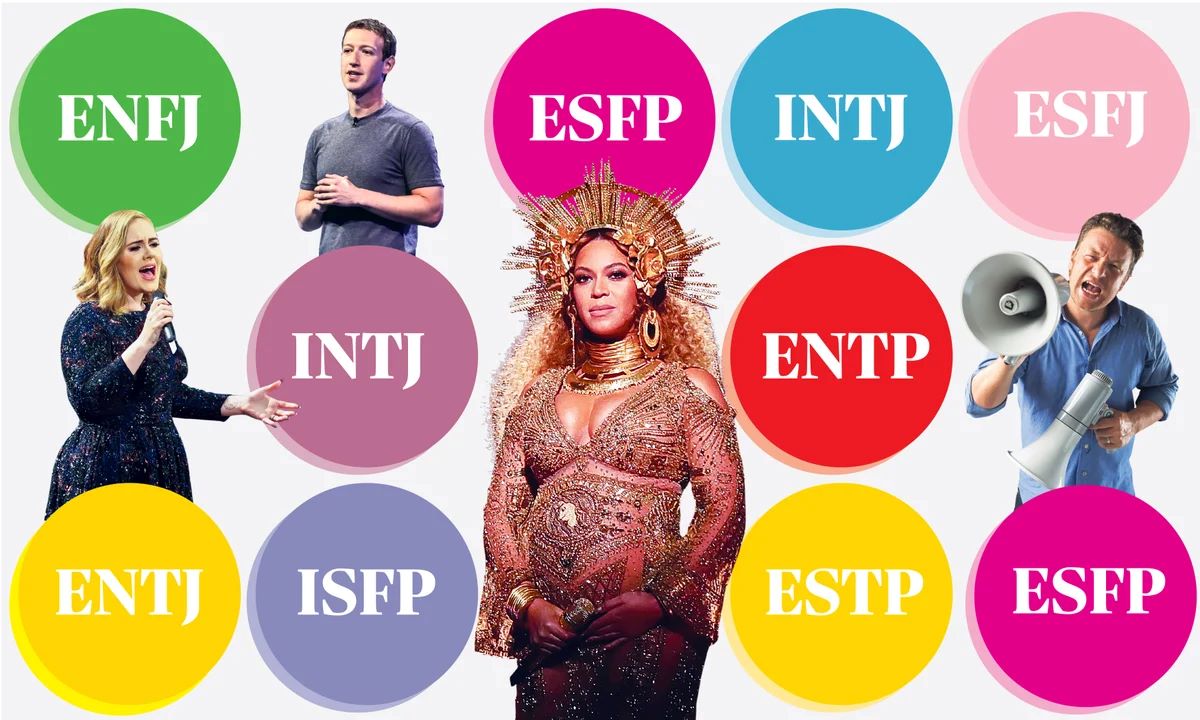
Ever wondered what makes you tick? The Myers-Briggs Type Indicator (MBTI) might have the answer. This personality test, developed by Katharine Cook Briggs and her daughter Isabel Briggs Myers, categorizes people into 16 distinct personality types. But what exactly is the MBTI, and why should you care? Understanding your MBTI type can help you navigate relationships, career choices, and even personal growth. From introverts to extroverts, thinkers to feelers, the MBTI covers it all. Ready to dive into the world of personality types? Here are 34 fascinating facts about the Myers-Briggs Test that will give you a deeper understanding of yourself and others.
Key Takeaways:
- Uncover your personality type with the Myers-Briggs Test, and learn how to communicate better with others based on their types. It's like having a secret code to understanding people!
- Despite criticisms, the Myers-Briggs Test is a fun way to explore personality types and understand famous characters in pop culture. It's like unlocking the hidden traits of your favorite fictional characters!
What is the Myers-Briggs Test?
The Myers-Briggs Type Indicator (MBTI) is a popular personality assessment tool. It helps people understand their own personalities and those of others. Let's dive into some interesting facts about this test.
- The MBTI was developed by Katharine Cook Briggs and her daughter, Isabel Briggs Myers.
- It is based on Carl Jung's theory of psychological types.
- The test categorizes people into 16 different personality types.
- Each type is represented by a four-letter code, like INFP or ESTJ.
- The four letters stand for Introversion (I) or Extraversion (E), Sensing (S) or Intuition (N), Thinking (T) or Feeling (F), and Judging (J) or Perceiving (P).
How the MBTI Works
Understanding how the MBTI works can help you appreciate its insights. The test measures preferences in four areas.
- The first area is how you focus your attention: Introversion (I) or Extraversion (E).
- The second area is how you take in information: Sensing (S) or Intuition (N).
- The third area is how you make decisions: Thinking (T) or Feeling (F).
- The fourth area is how you deal with the world: Judging (J) or Perceiving (P).
- Each preference pair forms a dichotomy, meaning you lean more towards one than the other.
Popularity and Usage
The MBTI is widely used in various fields. It has become a tool for personal growth and professional development.
- Over 2 million people take the MBTI each year.
- It is used in more than 70 countries.
- Many companies use it for team-building and leadership training.
- Schools and universities use it for career counseling.
- It is available in over 30 languages.
Criticisms and Controversies
Despite its popularity, the MBTI has faced criticism. Some experts question its scientific validity.
- Critics argue that the test lacks reliability and consistency.
- Some studies suggest that people can get different results if they retake the test.
- The MBTI does not measure traits like intelligence or mental health.
- Some psychologists believe it oversimplifies complex human behaviors.
- Despite these criticisms, many people find it useful for self-understanding.
Fun Facts About MBTI Types
Each of the 16 personality types has unique traits. Here are some fun facts about them.
- INFJs are known as "The Advocates" and are often seen as idealistic and compassionate.
- ESTPs, called "The Entrepreneurs," are known for their energetic and spontaneous nature.
- INTJs, or "The Architects," are strategic and love planning.
- ESFPs, known as "The Performers," are outgoing and love being the center of attention.
- INTPs, called "The Thinkers," are analytical and enjoy solving complex problems.
MBTI in Pop Culture
The MBTI has made its way into pop culture. Many people enjoy typing their favorite characters.
- Harry Potter is often typed as an INFP.
- Sherlock Holmes is frequently seen as an INTJ.
- Leslie Knope from "Parks and Recreation" is considered an ENFJ.
- Tony Stark (Iron Man) is often typed as an ENTP.
- Katniss Everdeen from "The Hunger Games" is seen as an ISTP.
MBTI and Relationships
Understanding personality types can improve relationships. Knowing your type and your partner's type can help you communicate better.
- Extraverts (E) often enjoy social activities, while Introverts (I) may prefer quiet time.
- Sensors (S) focus on facts and details, while Intuitives (N) look at the big picture.
- Thinkers (T) make decisions based on logic, while Feelers (F) consider emotions.
- Judgers (J) like structure and plans, while Perceivers (P) prefer flexibility and spontaneity.
Final Thoughts on Myers-Briggs
The Myers-Briggs Type Indicator (MBTI) offers a fascinating glimpse into personality traits. By understanding your MBTI type, you can gain insights into your strengths, weaknesses, and preferences. This tool helps in personal growth, career choices, and improving relationships. Despite some criticisms regarding its scientific validity, many find it useful for self-reflection and team-building.
Remember, the MBTI isn't a definitive label but a guide to understanding yourself and others better. Whether you're an INTJ or an ESFP, each type has unique qualities that contribute to the diversity of human experience. Embrace your type, but don't let it box you in. Use it as a stepping stone for personal development and fostering better connections with those around you.
Frequently Asked Questions
Was this page helpful?
Our commitment to delivering trustworthy and engaging content is at the heart of what we do. Each fact on our site is contributed by real users like you, bringing a wealth of diverse insights and information. To ensure the highest standards of accuracy and reliability, our dedicated editors meticulously review each submission. This process guarantees that the facts we share are not only fascinating but also credible. Trust in our commitment to quality and authenticity as you explore and learn with us.
